About Arbitrum (ARB)
What is Arbitrum (ARB)?
Arbitrum (ARB) is a Layer-2 scaling solution for Ethereum, designed to improve the speed, scalability, and cost-efficiency of the Ethereum blockchain. It utilizes a technology known as optimistic rollups to offload the bulk of computation and storage off-chain, helping Ethereum scale without sacrificing its security or compatibility. By doing this, Arbitrum significantly reduces transaction costs and increases throughput while still leveraging Ethereum’s security guarantees.
The ARB token is the governance token of the Arbitrum ecosystem, which means it is used to vote on key protocol upgrades, governance proposals, funds allocation, and the election of members of the Arbitrum Security Council. The goal of Arbitrum is to provide a scalable, efficient, and Ethereum-compatible platform for decentralized applications (DApps) while promoting decentralized governance through the Arbitrum DAO.
How Does Arbitrum (ARB) Work?
Arbitrum uses optimistic rollups to achieve scalability and reduce costs. Here’s a breakdown of how it works:
- Optimistic Rollups:
- Optimistic rollups allow most of the computation and data storage to occur off-chain, while only a minimal amount of information is stored on-chain. This helps Ethereum handle more transactions without burdening the network.
- The system operates on the assumption that transactions are valid by default (hence the term “optimistic”). Validators have a window of time in which they can dispute a transaction if they believe it’s fraudulent. This optimistic approach makes rollups faster and more cost-effective than traditional solutions.
- When a transaction is executed on Arbitrum, it’s processed off-chain, and the results are posted to the Ethereum mainnet in batches. This significantly reduces the load on Ethereum.
- Ethereum Compatibility:
- Arbitrum is fully compatible with the Ethereum Virtual Machine (EVM), meaning that decentralized applications (DApps) designed for Ethereum can run on Arbitrum without any modification to the underlying code. This allows for seamless scaling of existing Ethereum applications, while benefiting from lower fees and higher throughput.
- Stylus (EVM+ Equivalence):
- Arbitrum is set to introduce Stylus, an upcoming feature that will provide EVM+ equivalence. Stylus will allow developers to deploy applications written in popular programming languages like Rust, C++, and more, enabling a broader range of developers to build on the Arbitrum network and access its scalability benefits.
- Decentralization and Validators:
- Unlike some other Layer-2 solutions, Arbitrum does not rely on a centralized sequencer to order transactions. Instead, it uses a decentralized network of validators who stake ARB tokens and are incentivized to secure the network and process transactions.
- This approach ensures that the Arbitrum network remains decentralized, robust, and resistant to censorship.
- ARB Token:
- ARB is the governance token of the Arbitrum DAO (Decentralized Autonomous Organization). ARB token holders can vote on proposals to influence the future direction of the Arbitrum protocol, such as protocol upgrades, security measures, and the allocation of funds. This puts control over the Arbitrum network into the hands of its community, ensuring that it evolves in a decentralized and community-driven way.
What Are the Potential Use Cases for Arbitrum (ARB)?
Arbitrum offers several potential use cases, particularly in the realm of scalable and cost-efficient decentralized applications:
- Scaling Ethereum DApps:
- Arbitrum offers a scalable solution for Ethereum-based applications that struggle with high fees and slow transaction speeds on the Ethereum mainnet. Developers can move their DApps to Arbitrum to reduce costs and improve user experience without sacrificing Ethereum’s security.
- Decentralized Finance (DeFi):
- DeFi applications on Ethereum often face scalability issues, particularly during periods of high demand when transaction fees can become prohibitively expensive. Arbitrum provides a solution for these DeFi protocols to scale efficiently, offering faster transactions and lower costs while maintaining Ethereum compatibility.
- NFTs and Gaming:
- NFT platforms and gaming applications that require fast, cheap, and secure transactions can benefit greatly from Arbitrum’s high throughput and low transaction fees. NFTs and in-game assets can be traded or transferred more affordably and quickly, improving the user experience.
- Enterprise Solutions:
- Enterprises that want to use Ethereum’s security but need higher throughput for their blockchain-based applications can use Arbitrum. This includes use cases like supply chain management, financial services, and more, where large amounts of data need to be processed quickly and cheaply.
- Developer Ecosystem:
- The introduction of Stylus will allow developers to build decentralized applications not only in Solidity (Ethereum’s native language) but also in other popular languages like Rust and C++. This broadens the range of possible applications and attracts a wider pool of developers to the Arbitrum network.
What is the History of Arbitrum (ARB)?
- Development by Offchain Labs:
- Arbitrum was created by Offchain Labs, a New York-based blockchain development company founded by Ed Felten, Steven Goldfeder, and Harry Kalodner, who are all former Princeton University researchers with expertise in cryptography, blockchain, and computer science.
- Launch and Funding:
- In 2021, Offchain Labs raised funding in a Series B round, led by Lightspeed Venture Partners, which further boosted the development and expansion of the Arbitrum network.
- Introduction of Arbitrum DAO:
- In an effort to decentralize the governance of the platform, Arbitrum transitioned to a DAO structure, where governance decisions would be made by the community of ARB token holders. The ARB token was created as the governance token for this DAO.
- Airdrop of ARB Tokens:
- In March 2023, Arbitrum distributed an airdrop of ARB tokens to early users of the network and DAOs that had built on Arbitrum. The token generation event (TGE) for ARB took place on March 23, 2023, marking an important milestone for the Arbitrum network’s decentralization and governance.
- Roadmap and Future Developments:
- Arbitrum has continued to evolve, with plans for further expansion in 2023. The introduction of Stylus (the EVM+ equivalence feature) will bring even more scalability and flexibility to the platform, allowing developers to deploy applications in languages beyond Solidity, such as Rust and C++.



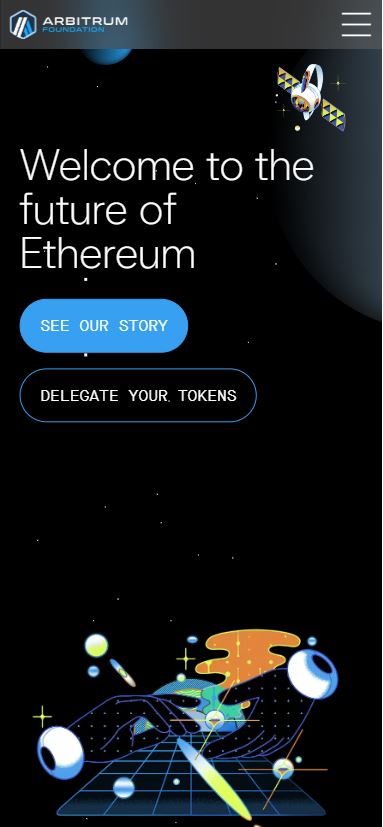
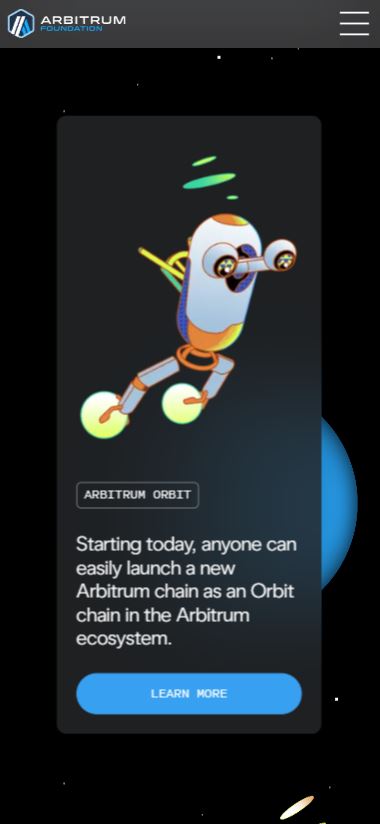
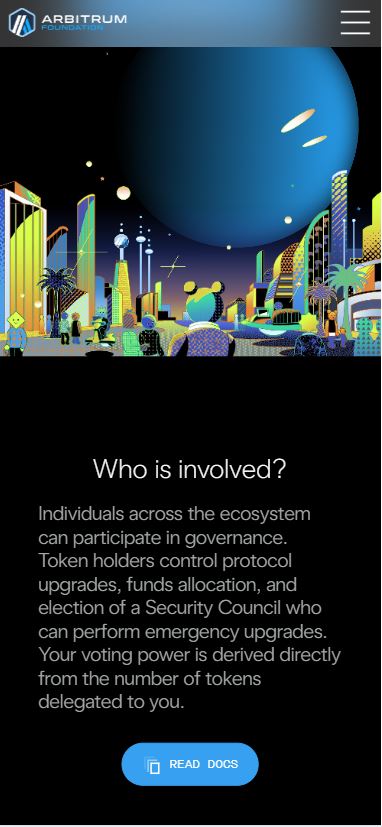
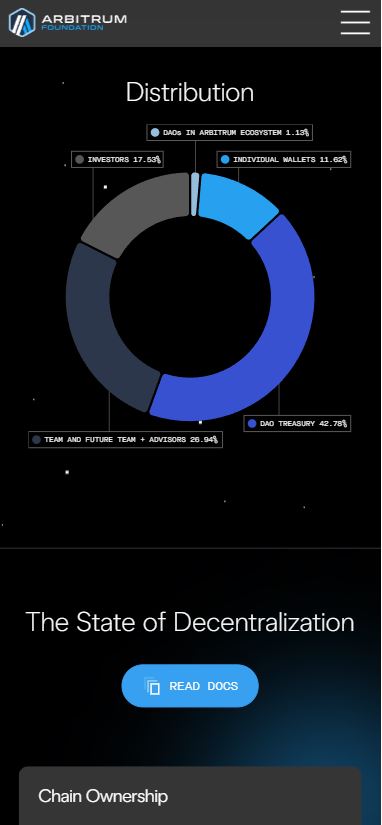
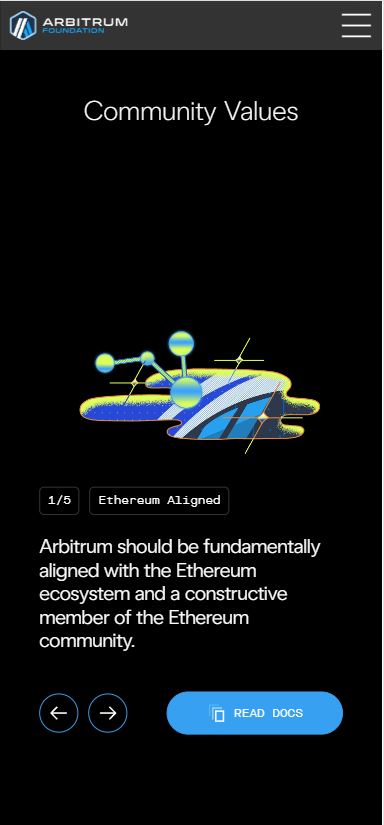








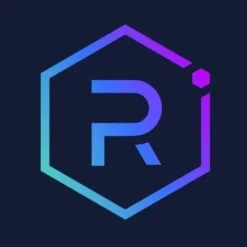







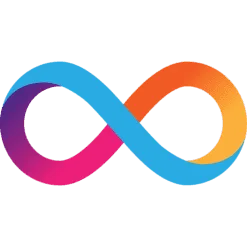
Harran –
Good
Harran –
👍
Eyad –
‘